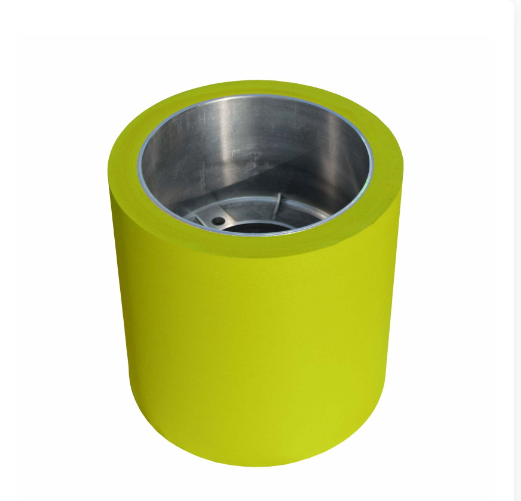Rice rubber rolls are an essential component of rice hulling machines, playing a vital role in separating the husk from the paddy grain and producing brown rice. The quality and efficiency of the rice hulling process largely depend on the performance of the rubber rolls.
Here are some of the key benefits of Rice Rubber Roll:
- High hulling rate: Rice rubber rolls are designed to provide a high hulling rate, ensuring that maximum rice is extracted from the paddy grain. This is achieved through the unique properties of rubber, which allow it to effectively grip and remove the husk without damaging the kernel.
- Low broken rice content: Rice rubber rolls also help to minimize broken rice content during the hulling process. This is due to the soft and elastic nature of rubber, which helps to cushion the impact on the paddy grains.
- Durable and long-lasting: Rice rubber rolls are made from high-quality materials that are resistant to wear and tear. This ensures that they can withstand the harsh conditions of the rice hulling process and provide long-lasting performance.
- Easy to maintain: Rice rubber rolls are relatively easy to maintain and replace. This helps to reduce downtime and keep the rice hulling process running smoothly.
In addition to the above benefits, rice rubber rolls also offer a number of other advantages, such as:
- Energy efficiency: Rice rubber rolls are energy-efficient, as they require less power to operate than traditional metal rolls. This can help to reduce operating costs and improve the environmental footprint of the rice hulling process.
- Noise reduction: Rice rubber rolls produce less noise than metal rolls, which can create a more comfortable and productive work environment.
- Food safety: Rice rubber rolls are made from food-grade materials that are safe for food contact. This helps to ensure the safety and quality of the milled rice.
Overall, rice rubber rolls offer a number of significant benefits for rice hullers. They can help to improve the efficiency, quality, and sustainability of the rice hulling process, making them an essential investment for any rice mill.
Here are some additional tips for ensuring the optimal performance of rice rubber rolls:
- Use rubber rolls that are specifically designed for rice hulling.
- Select rubber rolls with the appropriate hardness and elasticity for the type of paddy grain being milled.
- Maintain proper alignment of the rubber rolls.
- Regularly inspect the rubber rolls for wear and tear and replace them as needed.
By following these tips, you can ensure that your rice rubber rolls continue to deliver high performance and efficiency for many years to come.

